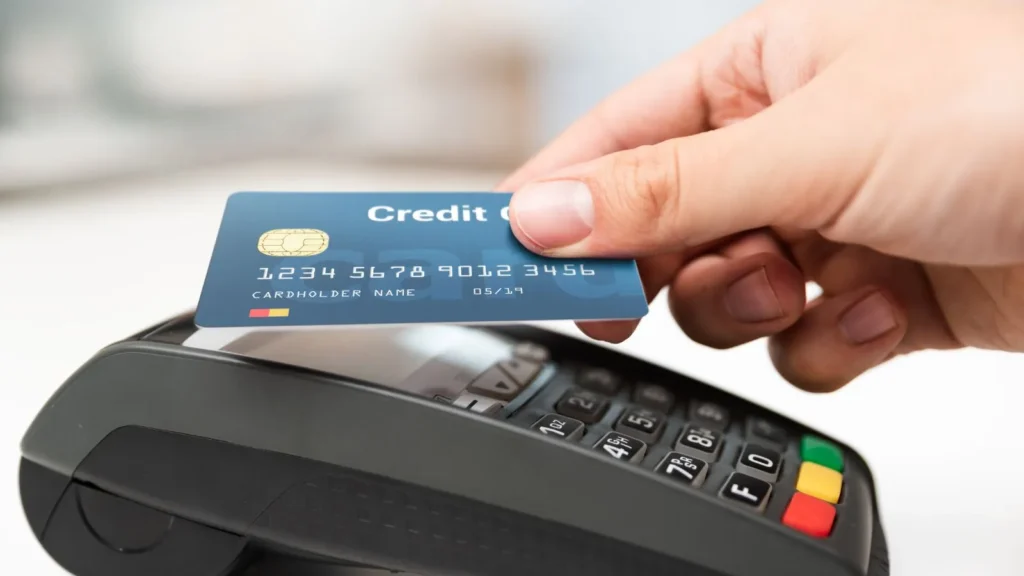Let’s face it—credit cards are a part of everyday life, but how often do we really think about how we use them? We’ve all had those moments when we tap or swipe without a second thought, only to cringe when the bill arrives. A little attention to how we use these tiny pieces of plastic especially these 5 things to keep in mind while using credit cards – can go a long way in protecting our hard-earned money.
Whether you’ve been using credit cards for years or you’re just figuring out what that shiny new card can do, a few smart habits can help keep your finances on track.
So, settle in with a cup of coffee, and let’s explore some practical tips that can help you avoid the pitfalls and make credit cards work in your favor. Your wallet — and your future self — will thank you.
What are Credit Cards?
Credit cards are like a loan in your pocket, letting you buy things now and pay for them later. When you swipe or tap that little plastic card, the bank covers the cost for you, and you agree to pay them back, often with interest if you don’t pay in full each month.
Think of it like borrowing from a friend — except this friend charges fees if you take too long to repay. Different cards come with perks, like rewards or cashback, but they also have their own set of rules, fees, and interest rates. Knowing how they work can help you avoid surprises on your statement and make the most of the benefits they offer.
So, before you grab a credit card for those impulse buys or daily expenses, it’s worth knowing how they can impact your finances — both the good and the not-so-good.
Here are the 5 things to keep in mind while using credit cards:
Know Your Credit Limit
When it comes to using credit cards, understanding your credit limit is key. Think of it as your spending runway – it’s the max amount you can charge before your card gets declined. But there’s more to it than just a number.
What’s a credit limit, anyway?
Your credit limit is basically how much faith your card issuer has in you. They look at things like your income, credit score, and payment history to decide how much to let you spend. It’s like a financial trust fall – they’re betting you’ll pay it back.
Why maxing out is a no-no
Here’s the thing about credit limits – just because you can spend it all, doesn’t mean you should. Maxing out your cards is like eating the whole pizza – it might feel good in the moment, but you’ll regret it later.
When you use up all your available credit, it can ding your credit score. Lenders see it as a red flag, like you’re living on the financial edge — and there is no wiggle room for emergencies.
So, when using credit cards, try to keep your balance well below the limit. It’s better for your wallet and your credit health in the long run.
Make Payments on Time
The second on the list of things to keep in mind while using credit cards is timely payments. Using credit cards responsibly starts with paying your bills on time. It’s a simple habit that can make a world of difference in your financial health.
Let’s dive into why this matters and how you can stay on top of your payments.
Dodge That Extra Fees
Nobody likes throwing money away, right? Late payments on credit cards often come with hefty fees – more like paying extra cash for… well, nothing!
Many cards slap you with higher interest rates if you’re late. Ouch! By paying on time, you’re keeping more of your hard-earned cash in your pocket.
Boost Your Credit Score
Here’s a fun fact — your payment history makes up a big chunk of your credit score. Every time you pay on time, it’s like giving your score a little high-five.
Over time, these on-time payments can really add up, potentially pushing your score into better territory. This can mean better rates on loans, easier approval for apartments, and even job opportunities down the road.
Set It and Forget It
Let’s face it – life gets busy. It’s easy to forget a due date every once in a while. That’s where automatic payments come in handy. Most credit card companies let you set up auto-pay – like having a personal assistant who never forgets to pay your bills.
Just make sure you’ve got enough in your bank account to cover the payment!
Using credit cards wisely is all about forming good habits. Paying on time is one of the easiest and most impactful habits you can develop.

Be Wary of Cash Advances
Cash advances on credit cards might seem like a quick fix when you’re in a pinch, but they can lead you down a very slippery slope. Here’s why you should think twice before using this feature.
Hidden Costs and Immediate Interest
When using credit cards for cash advances, you’re hit with a double whammy. First, there’s usually a hefty upfront fee. Then, interest starts accumulating right away – no grace period here! It’s like stepping into quicksand; the more you struggle, the deeper you sink.
A Red Flag for Your Finances
Taking out cash advances can be a sign that you’re in over your head financially. Credit card companies see this as risky behavior, which might affect your future borrowing options. It’s like waving a red flag that says, “Hey, I’m desperate for cash!”
The Debt Trap
The real danger of cash advances is how easily they can trap you in debt. It’s easy to rely on them, which can lead to a pattern of borrowing over and over. Before you know it, you’re juggling multiple bills and feeling the stress that comes with financial trouble.
Cash advances on credit cards should be your last resort. There are usually better choices out there that won’t cost as much in fees and interest.
Watch Out for Fees
When using credit cards, it’s easy to overlook the fine print. But those sneaky fees can add up fast! Let’s take a closer look at some common charges you might encounter:
Late Payment Penalties
The average credit card late payment fee is a whopping $39. That’s like buying a fancy dinner… just to throw it away. Set up automatic payments or reminders to avoid this costly mistake.
Cash Advance Costs
Need cash in a hurry? Think carefully before reaching for your credit card at the ATM. Cash advances often come with hefty fees, usually between 3% to 5% of the amount you take out.
Plus, unlike regular credit card purchases, the interest starts piling up right away—no grace period. It can end up costing you more than you think.
Over-limit Surprises
Maxed out your card? Brace yourself for over-limit fees, which can hit you with up to $39 per occurrence. It’s like paying extra for the privilege of spending money you don’t have. Not cool!
Using credit cards responsibly means staying on top of these potential pitfalls. Keep an eye on your spending, set up alerts, and always read the terms carefully.
Monitor Your Credit Utilization
When it comes to using credit cards, keeping an eye on your credit utilization is key. But what exactly does that mean?
Simply put, it’s the percentage of your available credit that you’re currently using.
The 30% Rule
You’ve probably heard financial gurus talk about the “30% rule.” It’s not just a random number they pulled out of thin air. Most experts recommend keeping your credit utilization below 30% to maintain a good credit score.
Why?
Because it shows lenders you’re not maxing out your cards or relying too heavily on credit.
Crunching the Numbers
Figuring out your credit utilization ratio isn’t rocket science. Just take the total amount you owe across all your credit cards and divide it by your total credit limit.
For example, if you owe $3,000 and your total credit limit is $10,000, your utilization is 30%.
Tips to Keep It Low
Staying under that 30% mark can be tricky, especially if you’re a frequent credit card user. Here are a few tricks:
- Pay your balance more than once a month
- Ask for a credit limit increase (but don’t spend more!)
- Use multiple cards to spread out your spending
Remember, your credit utilization can change daily as you make purchases and payments. Keeping tabs on it regularly can help you stay on top of your credit game and potentially boost your credit score over time.
Mentioned above are the five things to keep in mind while using credit card — your plastic money. Credit cards can be super handy, but they come with responsibilities too. By staying on top of your spending, paying on time, and using rewards wisely, you’ll be in great shape.
Friendly reminder – a credit card is a tool, not free money. Use it smartly and it can work for you. Slip up, and you might end up in a financial pickle. At the end of the day, being mindful about how you use credit will help you build a solid financial future







